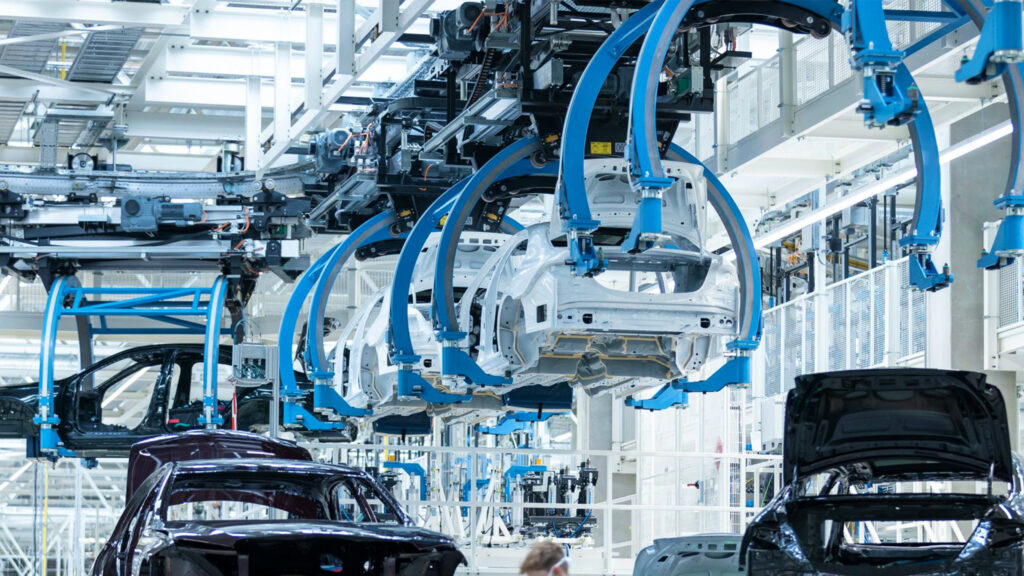Potential Tariffs on Factory Robots Raise Concerns Among Automakers
The issue of tariffs has always been a painful one for the automotive industry, affecting everything from vehicle prices to the selection of plant construction sites. Now, this debate has intensified again.
Automotive Industry Concerned About Rising Costs
Most major American automakers are urging the Trump administration to abandon plans to impose tariffs on factory robots and industrial equipment, warning that such a move could significantly increase the cost of manufacturing cars in the United States.
The Alliance for Automotive Innovation sent a letter to Julia Herson, Deputy Assistant Secretary for Strategic Trade, emphasizing that about 40% of all robotics installations and equipment across the country are related to automotive manufacturing.
The letter stressed that automation remains key to modern automotive manufacturing, assisting workers in tasks such as painting, welding, fastening, and material handling.
Investigation and Its Consequences
A powerful lobby representing companies such as Ford, GM, JLR, Kia, Mazda, Mercedes, Mitsubishi, Nissan, Porsche, Stellantis, Subaru, Honda, Toyota, BMW, and others sent the letter shortly after the U.S. Department of Commerce launched a national security investigation into factory robots and equipment. Such investigations can be used to impose new tariffs.
Increasing the cost of equipment at existing production facilities will raise overall manufacturing costs for automakers, could cause production delays, and lead to vehicle shortages and higher car prices for American consumers at a time when new car prices have already reached a historic high.

It was also noted that potential tariffs on robotics and industrial equipment could be particularly severe for automotive suppliers in the U.S., given that at least 20% of local suppliers are already in a difficult financial situation.
Positions of Automakers and Governments
If tariffs are imposed by President Donald Trump, the alliance urged the administration to provide relief options for robotics and industrial equipment used to supply, enhance, or maintain automotive manufacturing, assembly, or production capacity.
It is reported that Tesla separately urged the Trump administration not to impose these tariffs. Governments, including China, Switzerland, Japan, Canada, and the EU, have also expressed their opposition.
New Tariffs on Trucks and Manufacturer Reaction
The news of the campaign against potential new tariffs came shortly after President Trump announced new tariffs on medium and heavy-duty trucks imported into the United States. Starting November 1, these models will be subject to a 25% tariff.
A post on Truth Social contained a statement from the President that the heads of Ford and GM personally thanked him for imposing the new tariffs. However, Stellantis executives are unlikely to share the enthusiasm, as many of their medium and heavy-duty trucks are manufactured in Mexico.

These events are unfolding against a backdrop of global economic tensions, where trade policy is increasingly influencing automakers’ strategies. Many companies are already facing high costs due to inflation and supply chain issues, so additional tariffs could further complicate their situation. Furthermore, automation continues to play a key role in improving production efficiency, and any restrictions on its implementation could slow technological progress in the industry.


 by
by 
